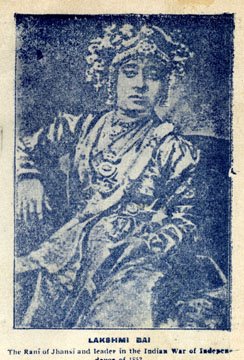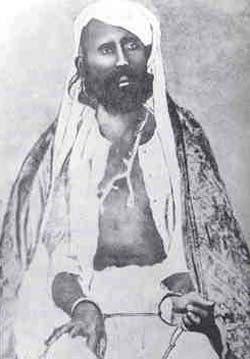
|
विजयराव, शेन्डेन हे वाचा. आता बोला काय ते-
http://specials.rediff.com/news/2007/jul/31slid1.htm
|
रीडिफवरील मुलाखत हा निर्विवाद पुरावा वाटत नाही. अजून बराच उहापोह करावा लागेल. बघू या. काही वर्षात खर्याखोट्याची शहानिशा होईल.
|
>>> विजयराव, शेन्डेन हे वाचा. आता बोला काय ते-
http://specials.rediff.com/news/2007/jul/31slid1.htm
आम्ही रीडिफ वाचत नाही. आम्ही फक्त "लोकसत्ता", "लोकमत" आणि "हिंदू" ही पाक्षिके वाचतो. या पाक्षिकातून जर तुम्ही संदर्भ दिलेलं छापून आलं तरच आम्ही आमची प्रतिक्रिया देऊ.
|
हे तरि मान्य करा की या माणसानी खर्या दृष्टीने पुराव्यांबद्दल लिहिले आहे आणि तुमच्य प्रिय नासा वगैरे लोकांनी तसा काहिच पुरावा दिलेला नाही.
|
भारत अमेरिकेदरम्यानच्या अणुकराराबद्दल सध्या बरच काहिकाहि चालु आहे. आपल यावर काय मत आहे??
|
Sunilt
| |
| | Friday, August 10, 2007 - 12:40 am: | 


| 
|
India’s democracy at 60 —Shashi Tharoor
At midnight on August 15, 1947, a new nation was born on a subcontinent ripped apart by a bloody partition. Independent India came into being as flames blazed across the land, corpse-laden trains crossed the new frontier with Pakistan, and weary refugees abandoned everything to seek a new life. A less propitious start for a fledgling nation could scarcely be imagined.
Yet, six decades later, the India that emerged from the wreckage of the British Raj is the world’s largest democracy, poised after years of rapid economic growth to take its place as one of the giants of the twenty-first century. A country whose very survival seemed in doubt at its founding offers striking lessons in constructing, against all odds, a working democracy.
No other country embraces such an extraordinary profusion of ethnic groups, mutually incomprehensible languages, religions, and cultural practices, as well as variations of topography, climate, and levels of economic development. In 1947, India’s leaders faced a country with a million dead, 13 million displaced, billions of rupees worth of property damage, and the wounds of sectarian violence still bleeding. Given this, and the challenges of administering a new country, integrating the “princely states” into the Indian Union, and reorganising the divided armed forces, they could have been forgiven for demanding dictatorial powers.
But India made a strength out of its major weakness. To the American motto, “E Pluribus Unum,” India could only counter, “E Pluribus Pluribum.” Instead of suppressing its diversity in the name of national unity, India acknowledged its pluralism in its institutional arrangements: all groups, faiths, tastes, and ideologies survive and contend for their place in the sun.
This wasn’t always easy. India suffered caste conflicts, clashes over the rights of different linguistic groups, religious riots (mainly between Hindus and Muslims), and separatist threats. Despite many stresses and strains, India has a remained a freewheeling multi-party democracy — corrupt and inefficient, perhaps, but nonetheless flourishing.
It helped that India’s founding fathers, from Mahatma Gandhi on, were convinced democrats. India’s first and longest-serving prime minister, Jawaharlal Nehru, spent his political career instilling in his people the habits of democracy: disdain for dictators, respect for parliamentary procedures, and abiding faith in the constitutional system.
As prime minister, Nehru carefully nurtured the country’s infant democratic institutions by showing them respect, even deference. For example, on the one occasion that he publicly criticised a judge, he apologised the next day and wrote an abject letter to the India’s Chief Justice. Though there was no serious challenger to his authority, Nehru never forgot that he derived his power from India’s people, to whom he remained astonishingly accessible.
By his personal example, democratic values became so entrenched that when his own daughter, Indira Gandhi, suspended India’s freedoms in 1975 with a 21-month State of Emergency, she felt compelled to return to the Indian people for vindication. Having imbibed the most important of her father’s values, she held a free election, which she overwhelmingly lost.
Though Indian politics is hardly immune to the appeal of sectarianism, its people have come to accept the idea of India as one land embracing many differences of caste, creed, colour, culture, cuisine, conviction, costume, and custom, yet still rallying around a democratic consensus. The heart of that consensus is the simple principle that you don’t need to agree all the time — except on the ground rules about how you can disagree. India has survived all the challenges that have beset it for 60 years because it has maintained a consensus on how to manage without consensus.
For example, India permits all religions to flourish while ensuring that none is privileged by the state. This includes the granting of group rights, under which Muslims are governed by their own Personal Law, distinct from the common civil code. If America is a melting-pot, then India is a thali, a selection of sumptuous dishes in different bowls. Each tastes different, and does not necessarily mix with the next, but all belong on the same plate.
No one speaks seriously any more of the danger of disintegration. Separatist movements in far-flung places like Tamil Nadu and Mizoram have been quietly defused by a simple formula: yesterday’s secessionists become today’s chief ministers (the equivalent of provincial or state governors) and tomorrow’s opposition leaders.
Moreover, democracy in India is not an elite preoccupation, but matters most to the underprivileged masses. Whereas in the United States, a majority of the poor do not vote, — turnout in Harlem was 23% in the last presidential election — in India the poor turn out in great numbers.
As a result, the explosive potential of caste division also has been channeled through the ballot box, with the lowest of the low attaining high office. Mayawati, an “untouchable” woman, has ruled India’s most populous state, Uttar Pradesh, as Chief Minister three times, and now enjoys a secure majority.
More generally, the logic of the electoral marketplace means that no single communal identity can dominate others. Three years ago, India, a country that is 81% Hindu, saw a Roman Catholic political leader (Sonia Gandhi) make way for a Sikh (Manmohan Singh), who was sworn in by a Muslim (President Abdul Kalam). By contrast, the world’s oldest democracy, the US, has yet to elect a president who is not white, male, and Christian.
Democracy has sustained an India that safeguards the common space available to each identity. That idea has knit together a country that many thought would not survive, and whose 60th birthday is therefore well worth celebrating.
Shashi Tharoor is a former Under Secretary General of the United Nations.
|
>>> For example, India permits all religions to flourish while ensuring that none is privileged by the state. This includes the granting of group rights, under which Muslims are governed by their own Personal Law
No matter if the personal laws are discriminatory 
>>> No one speaks seriously any more of the danger of disintegration. Separatist movements in far-flung places like Tamil Nadu and Mizoram have been quietly defused by a simple formula: yesterday’s secessionists become today’s chief ministers (the equivalent of provincial or state governors) and tomorrow’s opposition leaders.
What about Kashmir and Assam? It's only a matter of time when these 2 states will be sovereign muslim majority nations.
>>> Moreover, democracy in India is not an elite preoccupation, but matters most to the underprivileged masses. Whereas in the United States, a majority of the poor do not vote, — turnout in Harlem was 23% in the last presidential election — in India the poor turn out in great numbers.
If candidates in United States start distributing free beer, coke and pizza on the election date to the poor, the voter turnout will go up.
>>> Three years ago, India, a country that is 81% Hindu, saw a Roman Catholic political leader (Sonia Gandhi) make way for a Sikh (Manmohan Singh), who was sworn in by a Muslim (President Abdul Kalam). By contrast, the world’s oldest democracy, the US, has yet to elect a president who is not white, male, and Christian.
This is because US people don't get carried away by these symbolic gestures. They think practically and don't vote on the basis of symbolism and emotions. They don't believe that electing a black president will significantly improve status of all blacks in US or not elcting a black president will not improve status of blacks at all. India had already got a dalit president from 1997-2002. This symbolic gesture has not at all changed (positively or negatively) status of dalits in India. Similarly Pratibha Patil's presidency will not change the status of women in India.
Electing a foreigner or being her sycophants is something every Indian should be ashamed of. It is not something that we should be proud of.
|
Shravan
| |
| | Friday, August 10, 2007 - 10:32 am: | 


| 
|
अतिशय गलिच्छ..!!!!!
http://esakal.com/esakal/08102007/Specialnews5D532A6E7F.htm
निषेध...!!!!!!!!
|
काय म्हणावे काहि सुचतच नहिये. एवढा उद्दाम पणा करुन वर पुन्हा त्याच जाहिर समर्थन! निर्लज्जपणाचा कळसच. हे सगळे महाभाग ज्या लोकशाहि पध्धतिद्वारे सत्ता उपभोगतायत त्या लोकशाहि वर त्यांचा यत्किंचितहि विश्वास नाहि हेच त्यांनि सिध्ध केलय
|
Santu
| |
| | Saturday, August 11, 2007 - 6:03 am: | 


| 
|
हा फोटो आहे राणी लक्ष्मीबाई यांचा. अर्थात त्याकाळी
फोटोग्राफ़ि चे techniq इतके आधुनीक नव्हते.
तरि सुध्दा यात राणी ची जरब डोळ्यात दिसते आहे. 
|
Santu
| |
| | Saturday, August 11, 2007 - 7:19 am: | 


| 
|
बांगला देशात १०००० चकमा हिन्दुना न तेथिल मुस्लिम
सरकार ने कसे भारतात पळवुन लावले याची माहिति खालिल
लिन्क वर आहे. बांगलादेशात मुस्लिम हिन्दुचा छळ करतात याची
व्हीडीओ क्लिप आहे.
http://quandaryreflection.blogspot.com/2007/06/10000-hindus-fear-eviction-in-mirpur-html .
|
simply great Santu,
कुठे मिळाला हा photo तुम्हाला? आमच्या बरोबर share केल्याबद्दल धन्यवाद. एखादि link असेल तर इथे द्याल का? कदाचित तात्या टोपे आणि बर्याच इतर योध्यांचे photos पण मिळतिल.
|
Santu
| |
| | Monday, August 13, 2007 - 1:35 pm: | 


| 
|
मराठ्मोळि
पाहतो असली तर देतो लिन्क
हा फोटो प्रतिभा रानडे यांच्या राणिच्या चरित्राच्या frontpage वर पण
होता.
तात्या टोपेचा फोटो काय कुठ पाहिला नाहि.
|
Santu
| |
| | Monday, August 13, 2007 - 1:45 pm: | 


| 
|
मराठ्मोळि
तात्या टोपेचा फोटो सापडला हा
त्याना ब्रिटिशानि अटक केल्यानंन्तर काढलेला आहे

|
Thank you very much , Santu .
|
Santu
| |
| | Thursday, August 16, 2007 - 11:44 am: | 


| 
|
मराठ्मोळि
हे फोटो weekipidiaa वर आहेत
|
हे वाचून बघा.
http://www.outlookindia.com/full.asp?fodname=20070818&fname=george&sid=1
|
Chyayla
| |
| | Monday, August 20, 2007 - 2:35 pm: | 


| 
|
All that you have succeeded in doing in this matter is to undo what the NDA government did.
यातच सगळ काही आले.. ईतक्या आंधळे पणे देशहिताचा विचार न करता राजकारण होउ शकत?.. निदान देशहिताच्या बाबतित तरी कॉंग्रेसने भाजपाच्या सोबत असावे एवढेच नव्हे तर सगळ्यानीच पक्षानिभिवेश बाजुला ठेवायला होता.
मला हे कळत नाही अणु करार करण्यापुर्वी पंतप्रधान बुशला सांगु शकत होते की अशा प्रकारचे निर्णय घेण्यापुर्वी संसदेतील सर्वपक्षीय मत घेउन मगच काय तो निर्णय घेउ.
दुसरी गोष्ट लाल्यांचा विरोध केवळ ती अमेरिका आहे म्हणुन, चिन असता तर अगदी डोळे झाकुन करार करुन घेतला असता. तर भाजपाचा विरोध त्यातल्या काही अटी ह्या देशहितविरोधी असल्यामुळे आहे हा मुख्य फ़रक आहे.
|
Uday123
| |
| | Tuesday, August 21, 2007 - 1:44 am: | 


| 
|
या विषयावार कर्नल आठल्ये यांचा रेडिफ़ वर लेख आहे,
http://www.rediff.com/news/2007/aug/20guest2.htm
कम्युनिस्टांचा विरोध हा त्यांचे देश(?)हीत नजरे समोर ठेऊनच केलेला आहे. भाजपचा विरोध हा केवळ विरोधा साठी विरोध वाटतो. भाजप स्वत: सत्तेवर असता तर त्यांनी हेच केले असते (आणी त्याला कोंग्रेस ने विरोध केला असता).
मते, सत्ता यांच्या समोर देशहीत कुचकामी ठरतो. आपली राजकीय प्रगल्भता अजून खुप लहान आहे.
|
जॉर्जने आपल्याला काय म्हणायचे होते त्याचे स्पष्टीकरण दिले आहे.
http://www.indianexpress.com/story/211583.html
|
|
| मायबोली |
 |
| चोखंदळ ग्राहक |
 |
| महाराष्ट्र धर्म वाढवावा |
|
| व्यक्तिपासून वल्लीपर्यंत |
|
| पांढर्यावरचे काळे |
|
| गावातल्या गावात |
|
| तंत्रलेल्या मंत्रबनात |
|
| आरोह अवरोह |
|
| शुभंकरोती कल्याणम् |
|
| विखुरलेले मोती |
|
|
|

|